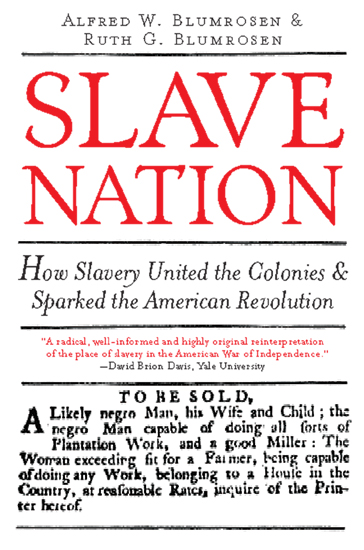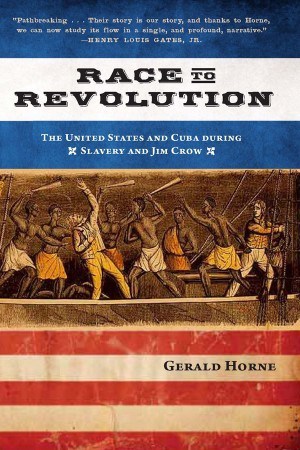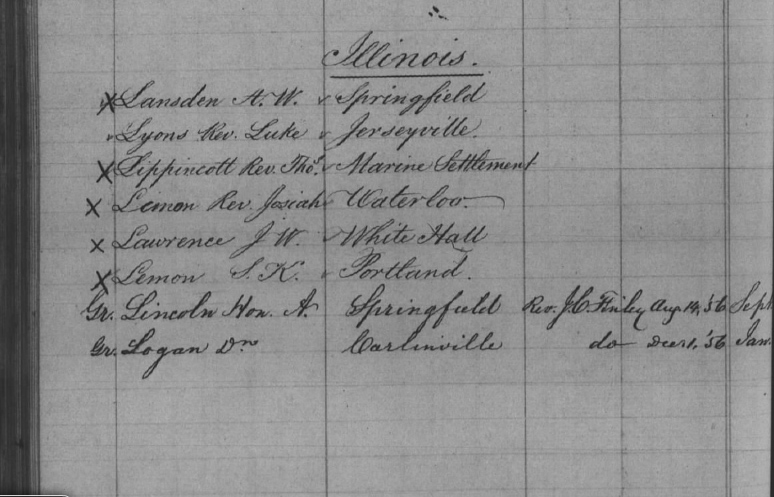<iframe width="640" height="360" src="//www.youtube.com/embed/xPyG8i2YxtQ" frameborder="0" allowfullscreen></iframe>
<iframe width="640" height="360" src="http://www.democracynow.org/embed/story/2014/6/27/counter_revolution_of_1776_was_us" frameborder="0" allowfullscreen="true"></iframe>
Time for you to take a break from Corporate media propaganda:


This carefully documented, chilling history presents a radically different view of the profound role that slavery played in the founding of the republic, from the Declaration of Independence and the American Revolution through the creation of the Constitution. The book begins with a novel explanation about the impact slavery had on the founding of the republic. In 1772, a judge sitting in the High Court in London declared slavery "so odious" that it could not exist as common law and set the conditions which would consequently result in the freedom of the 15,000 slaves living in England at that time.
This decision eventually reached America and terrified the predominantly southern slaveholders because America was then a collection of British colonies and as such were subject to British law, and they feared that this decision would cause the emancipation of the slaves here. Thus, to ensure the preservation of slavery, the southern states joined the northern colonies in their fight for "freedom" and their rebellion against England.
This decision was codified in the First Continental Congress in 1774 when John Adams promised southern leaders the support of their right to maintain slavery and drafted a Declaration of Colonial Independence from Parliament. What follows is a fascinating account of the role slavery played in the drawing of the United States Constitution. It was only in the end, when the northern states threatened to walk out over the issue of slavery, that the southern states agreed to the prohibition of slavery north of the Ohio River, embodied in the Northwest Ordinance which created the largest slave-free area in the world. This would eventually give birth to the Civil Rights Act of 1964 which codified Benjamin Franklin's affirmative action plan.
Features an introduction by Congresswoman Elanor Holmes Norton, and an in requiem poem by Barbara Chase-Riboud.
Slave Nation
http://www.amazon.com/gp/product/1402204000/?tag=vp314-20
Though the Heavens May Fall
http://www.amazon.com/dp/0738206954/?tag=vp314-20
I don't exalt my ancestors being put into slavery for hundreds of years as a result of July 4th. It wasn't a fight for freedom, but a fight to continue slavery forever. All you have to do is look North to Canada to see that British rule wasn't that bad if aren't into slavery...
<iframe width="640" height="360" src="http://www.democracynow.org/embed/story/2014/6/27/counter_revolution_of_1776_was_us" frameborder="0" allowfullscreen="true"></iframe>
Time for you to take a break from Corporate media propaganda:


This carefully documented, chilling history presents a radically different view of the profound role that slavery played in the founding of the republic, from the Declaration of Independence and the American Revolution through the creation of the Constitution. The book begins with a novel explanation about the impact slavery had on the founding of the republic. In 1772, a judge sitting in the High Court in London declared slavery "so odious" that it could not exist as common law and set the conditions which would consequently result in the freedom of the 15,000 slaves living in England at that time.
This decision eventually reached America and terrified the predominantly southern slaveholders because America was then a collection of British colonies and as such were subject to British law, and they feared that this decision would cause the emancipation of the slaves here. Thus, to ensure the preservation of slavery, the southern states joined the northern colonies in their fight for "freedom" and their rebellion against England.
This decision was codified in the First Continental Congress in 1774 when John Adams promised southern leaders the support of their right to maintain slavery and drafted a Declaration of Colonial Independence from Parliament. What follows is a fascinating account of the role slavery played in the drawing of the United States Constitution. It was only in the end, when the northern states threatened to walk out over the issue of slavery, that the southern states agreed to the prohibition of slavery north of the Ohio River, embodied in the Northwest Ordinance which created the largest slave-free area in the world. This would eventually give birth to the Civil Rights Act of 1964 which codified Benjamin Franklin's affirmative action plan.
Features an introduction by Congresswoman Elanor Holmes Norton, and an in requiem poem by Barbara Chase-Riboud.
Slave Nation
http://www.amazon.com/gp/product/1402204000/?tag=vp314-20
Though the Heavens May Fall
http://www.amazon.com/dp/0738206954/?tag=vp314-20
I don't exalt my ancestors being put into slavery for hundreds of years as a result of July 4th. It wasn't a fight for freedom, but a fight to continue slavery forever. All you have to do is look North to Canada to see that British rule wasn't that bad if aren't into slavery...
Last edited:


 Fuckallyal defending a slave holder. And he is the first to call a Black person a slave.
Fuckallyal defending a slave holder. And he is the first to call a Black person a slave. 


